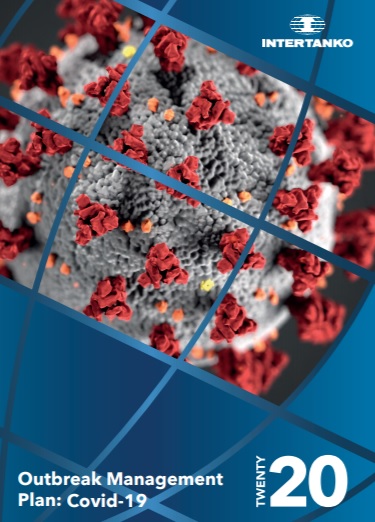
(www.MaritimeCyprus.com) INTERTANKO has issued a guidance paper which outlines the plans and procedures to be put in place to prepare a ship for shore personnel to come on board and to protect seafarers from the dangers posed by the new Coronavirus disease (Covid-19).
This includes potential exposure from shore personnel and the actions to take in the event of a suspected case on board. This guidance should be read in conjunction with the International Chamber of Shipping (ICS)-published Coronavirus (Covid-19) Guidance for Ship Operators for the Protection of the Health of Seafarers.
According to the WHO, scanning for temperature is not 100% effective as some infected people show no symptoms initially and some do not develop symptoms for up to 10 days. In general:
- No handshaking or any physical contact.
- No shore personnel should enter internal spaces of the vessel and accommodation doors should be locked.
- In the event that shore personnel do need to enter the accommodation, then they should be escorted throughout, maintain social distancing and wash their hands frequently.
- Have available at the gangway sanitising and disinfectant material for shore personnel when boarding.
- Food must not be brought on board by shore personnel. Shore personnel should not, where possible, eat on board.
- Have a dedicated space and /or toilet for the use of shore personnel, which should be cleaned and disinfected afterwards upon vessel departure.
- Shore embarkation ladders/gangways: It is recommended that no crew member should come in direct contact with any shore equipment including shore gangways and ladders.
Protective measures against COVID-19
The following advise is is based on WHO general advice and on the ICS guidance:
- Frequent hand washing by crew using soap and hot water or alcohol-based (at least 65-70%) hand rub for 20 seconds;
- Avoidance of touching the face including mouth, nose and eyes with unwashed hands (in case hands have touched surfaces contaminated with the virus);
- Seafarers should be encouraged to cover their nose and mouth with a disposable tissue when sneezing, coughing, wiping and blowing the nose, then dispose of the used tissue immediately;
- If a tissue is not available, crew should cover their nose and mouth and cough or sneeze into a bent elbow;
- All used tissues should be disposed of promptly into a waste bin;
- Seafarers should aim to maintain social distancing and keep at least one metre (3 feet) distance from other people, particularly those that cough or sneeze or may have a fever. If they are too close, other crew members can potentially breathe in the virus; and
- Meat, milk or animal products should always be handled with care, to avoid cross-contamination with uncooked foods, consistent with good food safety practices.
- The consumption of raw or undercooked animal products should be avoided.
- A medical log should be maintained.
When In Port
When entering ports of an affected country, seafarers must refrain from going ashore, with any disembarkation from the vessel avoided where possible.
Furthermore, during the port stay there should be minimal interpersonal exchanges with persons from ashore, avoiding contact with people who show symptoms of flu or high temperature and taking care of personal hygiene, including more frequent handwashing, etc. The primary means to prevent transmission of the virus is to maintain social distancing.
For more details, you can download the INTERTANKO Covid-19 Outbreak Management Plan, by clicking below:
Source: Intertanko
For more resources on COVID-19, click HERE














